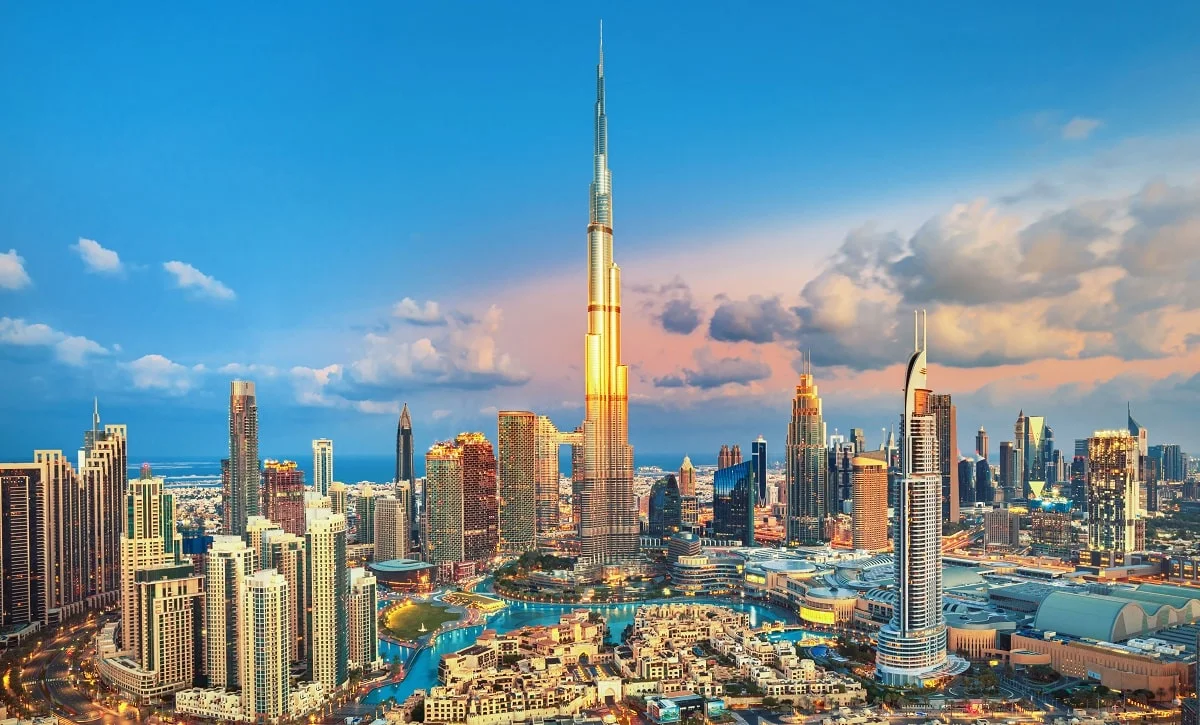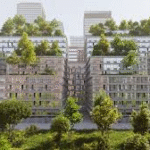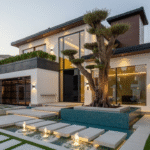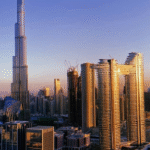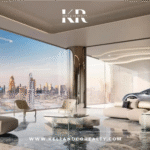Now Reading: Legal Framework for Foreign Property Ownership in Dubai: What Changed in 2025?
-
01
Legal Framework for Foreign Property Ownership in Dubai: What Changed in 2025?
Legal Framework for Foreign Property Ownership in Dubai: What Changed in 2025?

Table of Contents
Dubai’s legal framework for foreign property ownership, established in 2002 and formalized by Law No. 7 of 2006, has evolved significantly by 2025 to enhance transparency, accessibility, and investor confidence, aligning with the Dubai Economic Agenda (D33) and UAE Vision 2030. Building on prior discussions about blockchain, VR tours, and the Golden Visa, this response details the key changes to foreign property ownership laws in Dubai in 2025, their impact on real estate investment, and comparisons with Sharjah and Ajman, supported by actionable insights. The changes streamline processes, expand ownership options, and integrate advanced technologies, making Dubai a global leader in real estate investment.
Key Changes to the Legal Framework in 2025
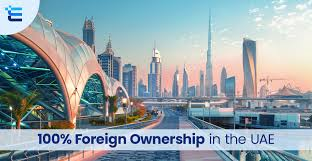
- Expansion of Freehold Zones:
- Change: New freehold areas added, including parts of Sheikh Zayed Road (from Trade Centre roundabout to Dubai Canal) and Al Jaddaf, allowing 100% foreign ownership of property and land, per Dubai Land Department (DLD).
- Impact: Increases investment opportunities in high-demand areas, with Sheikh Zayed Road properties yielding 6–8% and 10–12% appreciation, per Bayut Analytics. Boosts Golden Visa eligibility (AED 2M threshold), attracting 20% more HNWIs, per Henley & Partners.
- Comparison: Sharjah’s freehold zones (e.g., Aljada) are limited to specific projects, and Ajman’s Al Zorah restricts foreign ownership to leasehold, per Sharjah’s Freehold Zones.
- Leasehold-to-Freehold Conversion:
- Change: Homeowners in Sheikh Zayed Road and Al Jaddaf can convert leasehold (up to 99 years) to freehold, granting perpetual ownership, effective 2025, per DLD.
- Impact: Enhances property value by 15–20% in Al Jaddaf, with 7–9% yields, per Property Finder. Encourages long-term investment, supporting UAE Net Zero 2050 via LEED-certified upgrades, per Eco-Friendly Communities.
- Comparison: Sharjah and Ajman lack leasehold-to-freehold options, limiting investor flexibility, per Affordable Housing in Ajman.
- Digital and Blockchain Integration:
- Change: DLD introduced the world’s first blockchain-based property token ownership certificate in May 2025, enabling tokenized title deeds on XRP Ledger, per Prypco Mint. Cross-border transactions are digitized via DLD’s smart services, reducing paperwork by 70%, per dandbdubai.com.
- Impact: Cuts transaction times from weeks to minutes, saving 20–30% in costs (AED 50,000–100,000/deal). Tokenization allows fractional ownership from AED 2,000 ($540), with 3,000+ investors in Dubai South, per Blockchain in Dubai Real Estate.
- Comparison: Sharjah’s blockchain pilots (e.g., Maryam Island) are in early stages, and Ajman uses manual processes, per Sharjah’s Freehold Zones.
- Enhanced Escrow and Off-Plan Regulations:
- Change: Stricter escrow rules for off-plan projects mandate developers to deposit 100% of buyer funds into DLD-monitored accounts, per RERA updates in 2025. Digital due diligence platforms verify developer compliance, per drivenproperties.com.
- Impact: Reduces off-plan fraud by 90%, boosting confidence in Dubai Hills Estate projects (8–12% ROI), per Tenco Homes. Attracts 25% more foreign buyers, per Bayut.
- Comparison: Sharjah’s escrow systems are less robust, and Ajman’s off-plan market lacks transparency, per Affordable Housing in Ajman.
- Streamlined Golden Visa Process:
- Change: Simplified Golden Visa applications for property investors (AED 2M), with digital submission via DLD Cube and faster processing (1–2 months), per GDRFAD. Mortgaged properties now qualify if equity exceeds AED 2M, per Mint.
- Impact: 30% increase in applications, with Dubai Marina and Downtown Dubai seeing 40% foreign investor demand, per Raes Associates. Supports family sponsorship and 133 visa-free countries, per Get Golden Visa.
- Comparison: Sharjah’s investor visas require business setup, and Ajman offers no long-term residency, per Sharjah’s Freehold Zones.
- Corporate Ownership Clarifications:
- Change: Foreign companies can own property via Jebel Ali Free Zone (JAFZA) or Dubai Multi Commodities Centre (DMCC) subsidiaries, but complex offshore structures (e.g., BVI, Cayman) are restricted unless pre-approved by DLD, per Lexology.
- Impact: Simplifies corporate investments in Business Bay (5–7% yields), but requires legal due diligence, saving AED 20,000–50,000 in compliance costs, per Apex Capital.
- Comparison: Sharjah and Ajman restrict corporate ownership to local entities, deterring foreign firms, per Affordable Housing in Ajman.
- Inheritance Law Updates:
- Change: Mandatory legal wills for foreign investors to ensure property transfer to beneficiaries, with non-UAE nationals subject to home country laws unless UAE law is specified, per drivenproperties.com. Digital will registration via DLD introduced in 2025.
- Impact: Protects assets in Palm Jumeirah (AED 5–20M), reducing disputes by 80%, per Sobha Realty. Aligns with 30–50% R&D credits for tech-driven legal solutions, per R&D Tax Incentives in the UAE.
- Comparison: Sharjah’s inheritance laws are less clear for foreigners, and Ajman’s courts often default to state ownership, per Sharjah’s Freehold Zones.
Impact on Real Estate Investment

- Financial Gains: 6–9% yields and 6–15% appreciation in new freehold areas like Sheikh Zayed Road, with tokenized properties offering 7–9% returns, per Prypco Mint.
- Accessibility: Fractional ownership and digital transactions attract 70% of retail investors, with AED 114B FDI (H1 2024), per Role of Foreign Investment.
- Transparency: Blockchain and escrow enhancements cut fraud by 80–90%, boosting Dubai South sales by 25%, per Bayut Analytics.
- Sustainability: Freehold conversions and VR tours for LEED Gold properties (e.g., Sustainable City Dubai) add 10–25% premiums, per The Impact of Green Certifications.
Investment Opportunities
- Luxury Freehold Villas:
- Affordable Tokenized Apartments:
- Commercial Freehold Spaces:
- Short-Term Rentals:
Challenges and Considerations

- Regulatory Compliance: Complex corporate structures require DLD approval, with AED 10,000–20,000 legal fees, per Lexology.
- Market Education: 20–30% of investors need blockchain/tokenization guidance, per PropTech Trends 2025.
- Tax Obligations: 9% corporate tax and eInvoicing by March 31, 2025, carry AED 10,000 penalties, per Understanding UAE’s 15% Corporate Tax.
- Home Country Laws: Foreign investors face tax liabilities (e.g., U.S. rental income tax), requiring consultation, per MyBayut.
Recommendations
- Investment Strategy: Target tokenized LEED Gold apartments in Al Jaddaf or villas in Sheikh Zayed Road for 6–9% yields and Golden Visa, using PHOREE PropVR.
- Leverage Technology: Use Prypco Mint for tokenized purchases and Emaar VR tours for selection, per Blockchain in Dubai Real Estate and Virtual Reality Tours.
- Due Diligence: Verify freehold status and developer escrow via DLD , consult RERA-licensed agents, per bhomes.com.
- Legal Support: Engage lawyers for wills and corporate setups, costing AED 5,000–15,000, per Apex Capital.
- Tax Planning: Register via EmaraTax by March 31, 2025; consult PwC Middle East, per Understanding UAE’s 15% Corporate Tax.
- Monitor Updates: Track DLD regulations via and Emirates 24/7, per PropTech Trends 2025.
Conclusion
In 2025, Dubai’s legal framework for foreign property ownership has transformed with expanded freehold zones (Sheikh Zayed Road, Al Jaddaf), leasehold-to-freehold conversions, blockchain tokenization, and streamlined Golden Visa processes. These changes deliver 6–9% yields, 6–15% growth, and 80–90% fraud reduction, outperforming Sharjah’s and Ajman’s limited frameworks. Supported by AED 114 billion FDI and UAE Net Zero 2050, investors should target tokenized LEED-certified properties in Dubai South or Al Jaddaf via Prypco Mint, use Bayut VR tours, and ensure EmaraTax compliance by March 31, 2025, to maximize ROI and secure residency.
watch more
read more: Regulatory Compliance in Dubai’s Real Estate Market: Ensuring Secure Investments




